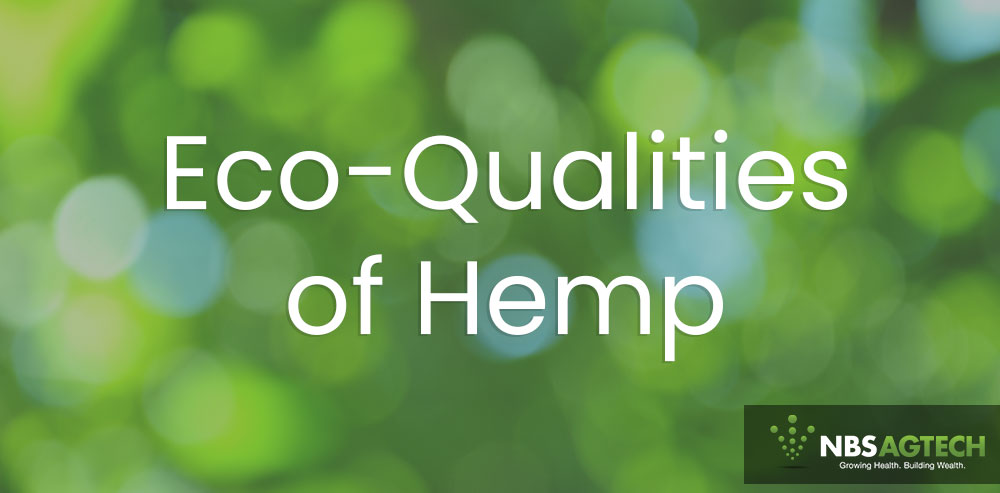
In this day and age, concerns about our environment are at the forefront of everyone’s minds. With growing concerns over the environment and continued efforts to improve sustainable living, hemp’s eco-friendly qualities are really shining through. Hemp is an extremely beneficial and eco-friendly plant, and people across the country are taking notice. Eco-friendly means anything that is not harmful to the environment; here are some of the ways hemp is stealing the show as one of the most eco-friendly industrial crops currently in the farming industry.
Sparing Space and Water
One of the biggest benefits of industrial hemp farming is the limited amount of water hemp plants require for optimum growth. When comparing the cotton plant to the hemp plant, studies show that cotton requires about 50% more water per season than hemp does. Hemp is able to grow with little irrigation, less water, and minimal upkeep compared to most other crops. Additionally, once you take processing into account, cotton again comes in last place using more than FOUR TIMES as much water as hemp! There is a reason cannabis earned the nickname “weed”, and a reason hemp is a member of the cannabis family; hemp can grow fairly easily and with little effort or water – much like those pesky weeds that always seem to pop up in your garden.
In addition to limited water intake, hemp is also a big space saver. Hemp, unlike most other industrial crops, can be planted much closer together than its’ competitor plants. Cotton for example uses a lot of land to grow, and when comparing cotton crops to hemp crops, cotton has proven it needs approximately twice as much land as hemp does per each ton of finished textile from the plants. Hemp can grow while very tightly spaced on your plot of land, allowing it to outcompete most weeds and saving space for other crops or resting soil plots.
No Chemicals Required!
While most crops require a hefty amount of pesticides to produce a good yield, hemp is naturally resistant to most pests, herbicides and fungicides. The use of pesticides and chemicals on large-scale farms have a huge impact on our environment each year. Hemp farmers can plant hundreds of acres of hemp plants without using one drop of pesticides, and still end up with a fantastic crop yield. Hemp is saving farmers time, effort, money, environmental run-off, and water. In addition to cutting out chemicals during the growth process, hemp can also be pulped using much fewer chemicals than a substance like wood because hemp has a much lower lignin content. With most people looking to go organic where they can, we anticipate organic hemp to jump to the front of pack within the next couple years as the go-to organic crop.
The Soil Factor
One of the most astonishing facts about hemp plants is their ability to improve the soil in which they were grown. While most crops deplete the soil after each harvest, taking all the nutrients and minerals the soil has to offer to produce their yield, hemp has the opposite effect on soil. This means harvesting a healthy hemp crop will allow you to immediately plant other crops on your plot, allowing you to skip a fallow period. Not only will hemp refrain from depleting your soil, it will actually repair your soil if needed. Using a process called phytoremediation, hemp is renown for its ability to naturally clean up soil pollution. In fact, hemp was used at Chernobyl to extract toxins and pollutants from the soil following the huge nuclear chemical spill in 1986.
For more information on how the wonderful eco-friendly qualities of hemp, and information on how to get your hemp farm started today email us at info@nbsagtech.com or give us a call at (702) 992 – 0552. We look forward to exploring the possibilities today of how we work together tomorrow.